Here is what I do for work
🎬Lights. Camera. Action!
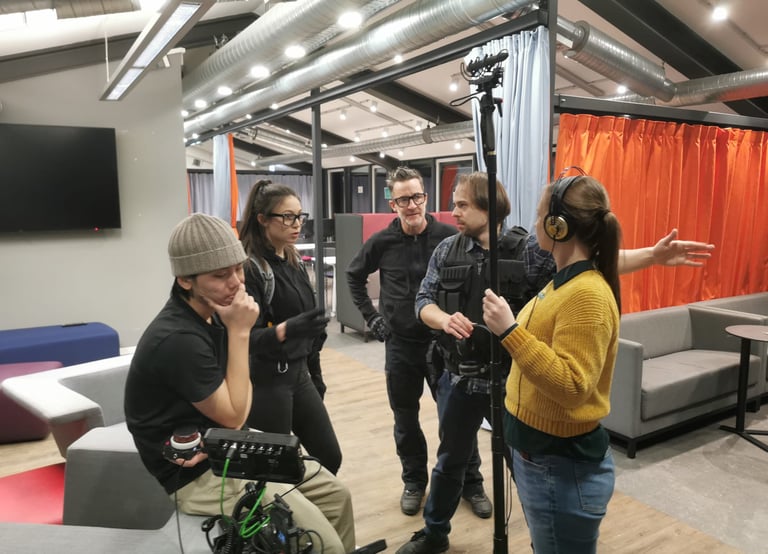

I direct live-action and animated films, oversee ADR and voiceover, cast talent, and write original screenplays.
The position of a director is my favorite place to be on set and I gladly take the responsibility, while shifting from a tactical to a strategic position to ensure a coherent outcome of film material. Plus, beyond the technical craft, there’s something unmatched about the camaraderie on a good set. When the team is in synergy, ideas take shape in ways that feel less like work and more like...movie magic. Except it's there, live on set, and you get to experience it first hand.
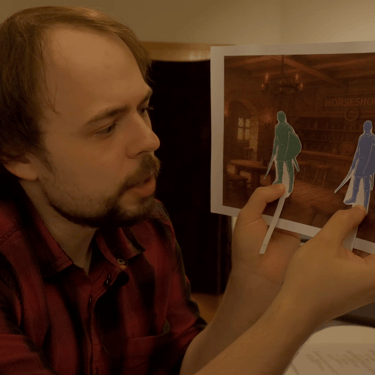
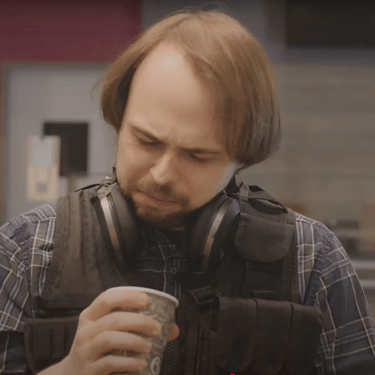
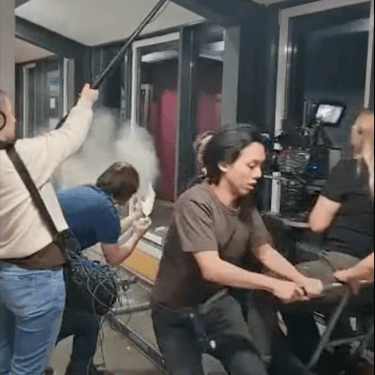
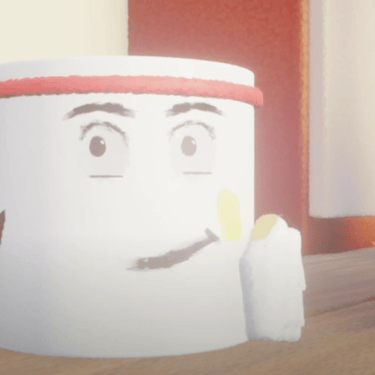
I also get behind the camera in the role of a teacher, actor, operative crew member like a special effects artists in the 3rd picture (Yup, that's me casting the white cloud) and a voice actor behind characters in animated films.
Of course, as a student I didn't have the financial resources to hire professional Foley artists and sound producers, as well as music producers, but given that I carry 14 years of music experience and 16 years of editing experience in my bag of artistic craft, I naturally learned how to do these things myself out of necessity. And now...I have all of my current line of film fully voiced, supplied with sound effects and accompanied by orchestrated music composed by me.
As a result, this lead me to understand the pre-production, production and post-production processes, so much better and molded me into the director I am today. I don't shy away from hardships and challenges, I embrace them and dig into artistic problems until I find diamonds.
(Cedrick Kumulia, Mika Sing, Lars Krone, Me, Tatiana Aliabeva [from left to right] and Jessica Böhm taking the picture.)
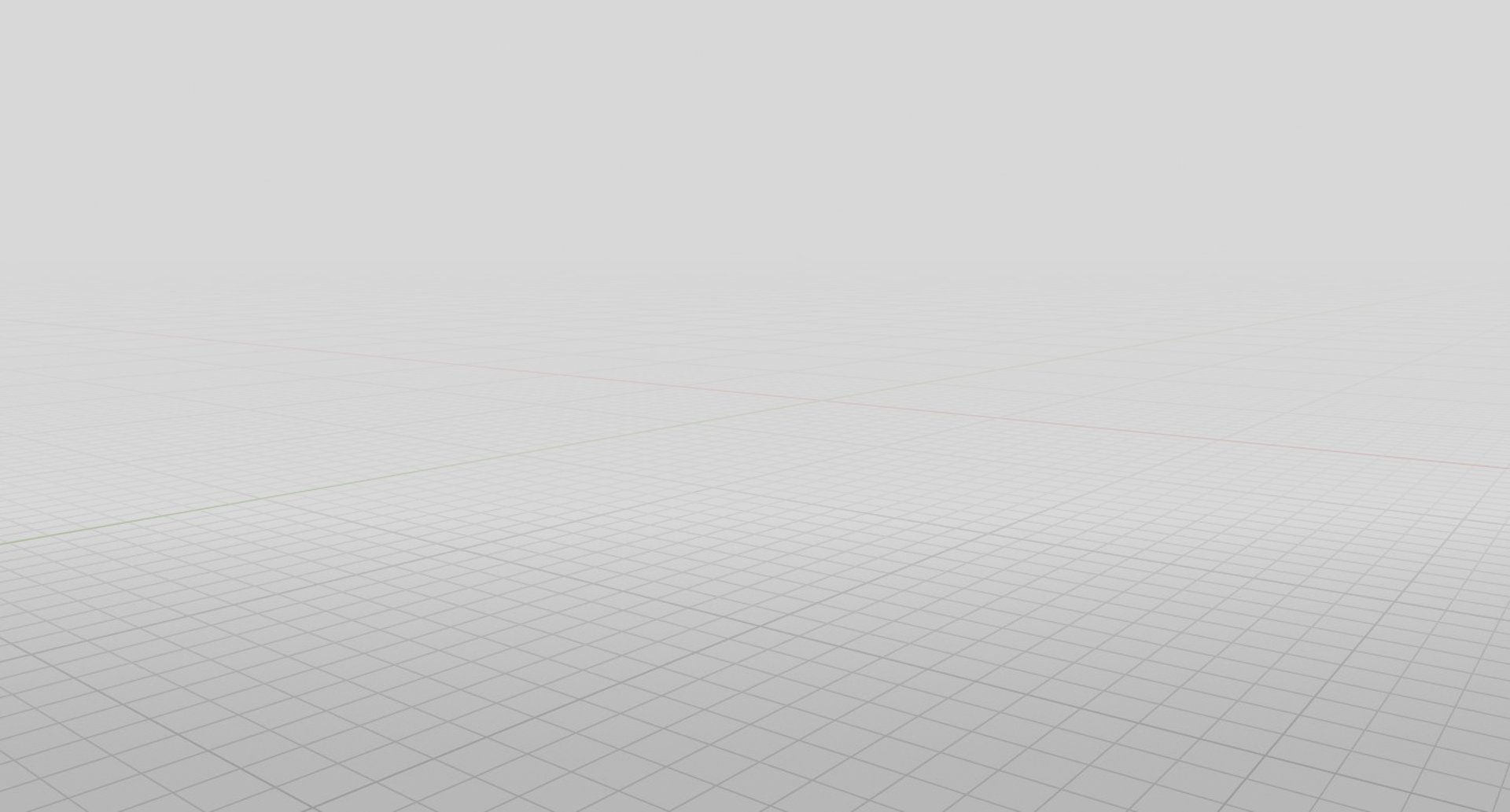
3D, CGI, VFX and EDITING
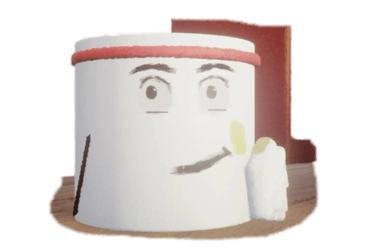

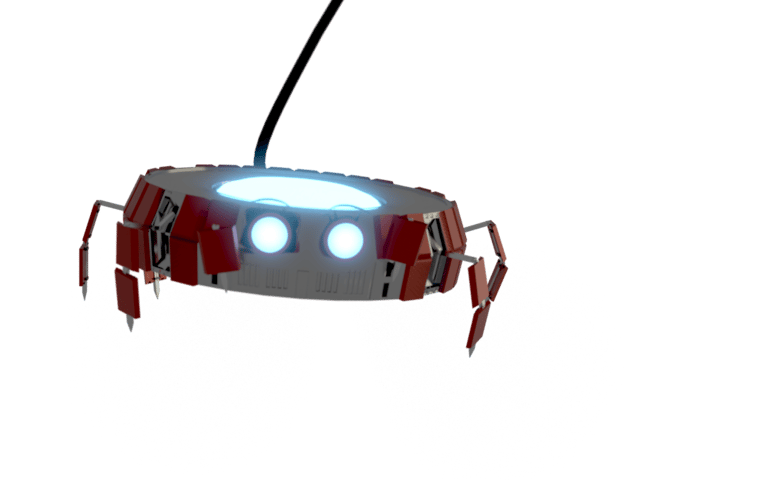

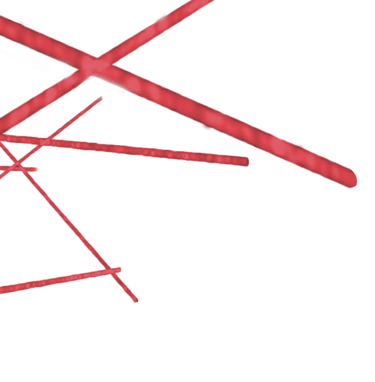

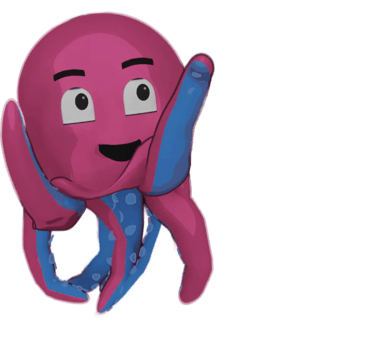

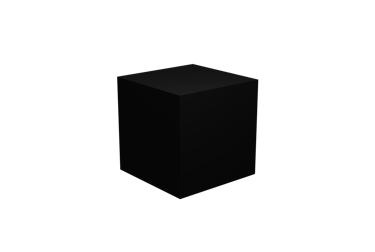

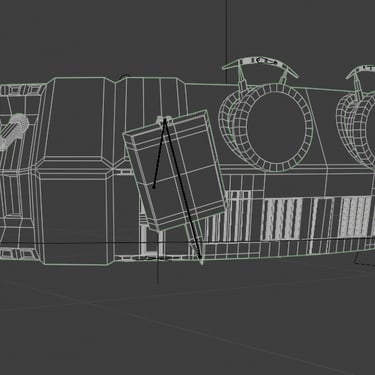
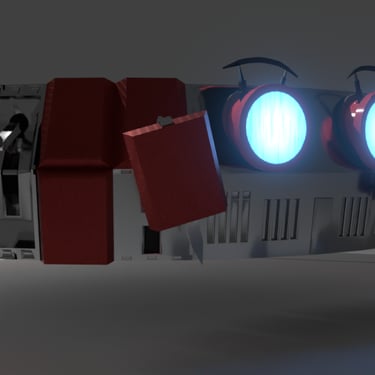
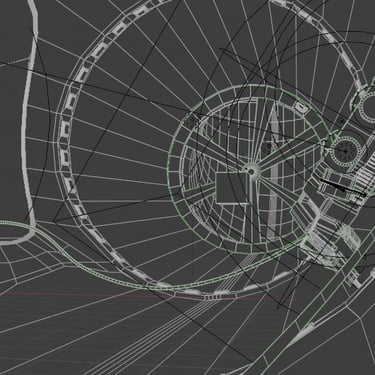
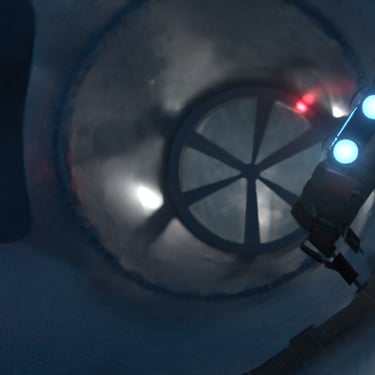
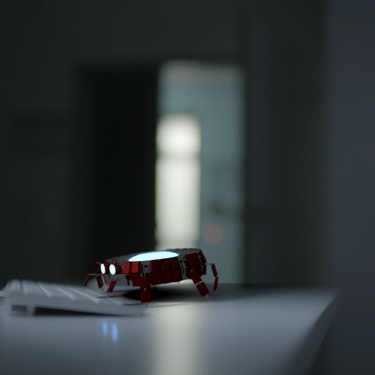
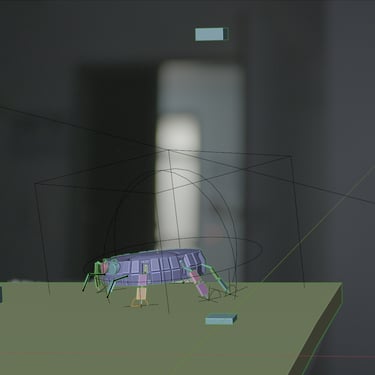
To breathe life into a 3D Mesh is nothing less of digital magic. At some point in my life, I decided to join the ranks of 3D wizards myself and so far... it has worked out pretty well!
When you do video editing for 17 years, at some point cutting film material together starts to "just not enough" and using stock green screen material starts to feel stale and unoriginal. 5 years ago I downloaded Blender for the very first time, and you can see the results up above. The pictures represent a mechanical spider S.A.M. which I created for my graduation short film. I modeled, textured, rigged and animated the character entirely myself, as well as put the little guy into my graduation film through means of compositing, accounting for shadows, reflections and light matching.
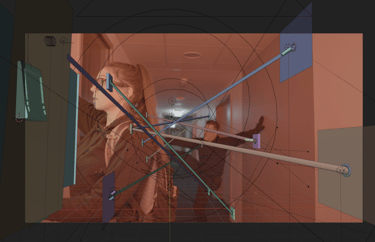

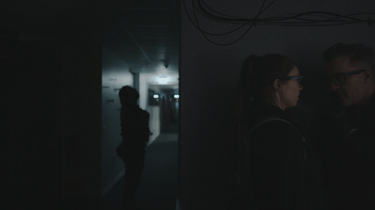
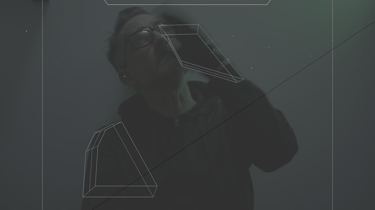
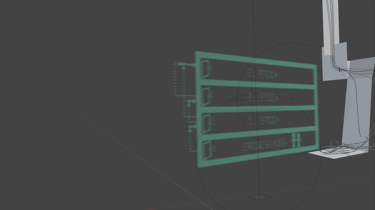
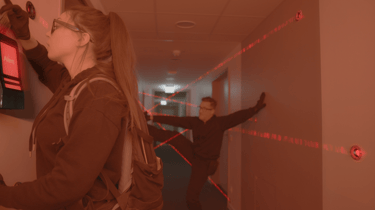
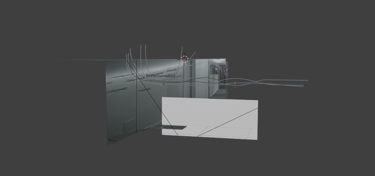
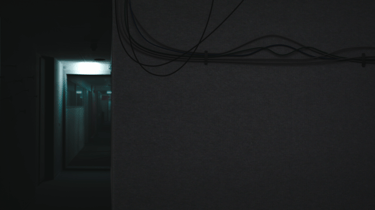
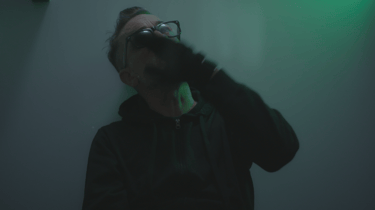
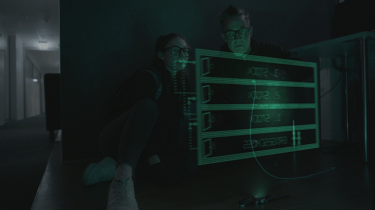










From Editor to 3D, VFX and CGI Artist
CGI and Compositing
Beyond 3D Characters my graduation short film "Once A Spy" also included several scenes with CGI elements that had to done in post-production. To mention a few:
A Laser Scene, a part of which was filmed as a wide one-shot for amplified comedic effect. For this shot the actors had to be rotoscoped, and integrated between the CGI elements, which include: Lasers created in 3D, Laser emitters that close and open created in 3D, a Key Card Reader also created in 3D. Bloom and Shadows had to be also added in 3D. The shadows of the character in the front were added in Fusion Studio during compositing (3rd image of a node tree). You can see the final composite in the second image.
A "hiding from bad guy scene", which was pretty stale, in terms of decorations, but that was fixed in post-production by adding cables and reconstructing the entire scene in 3D with image projection (5th image).
A scene where a character is being littered with dust and debris from the ceiling. Smoke effects, falling particles and collision models had to be constructed in 3D and then integrated via compositing.
A hologram shot with cables following from the previous shot, which also modeled and composited in 3D.
3D Replacement and 3D Doubles
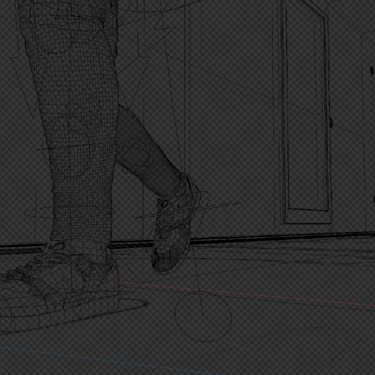
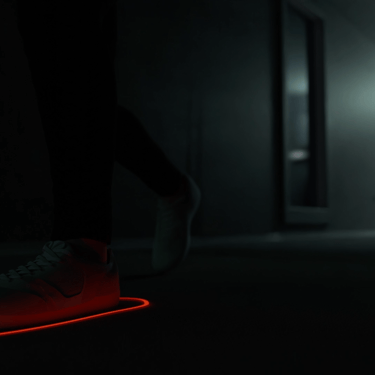
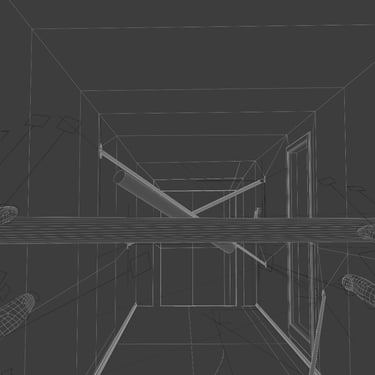
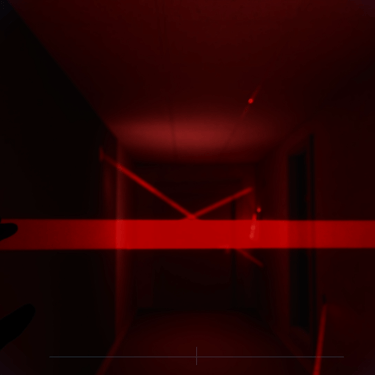
Due to heavy time constraints during production some scenes had to be done entirely in 3D. The laser scene was missing a "Laser activation" shot and a POV shot.
For the the laser activation shot the actors had to be approximately but very closely modeled in 3D with exact clothing, matching posture and behavior. While it was possible to omit a complete reconstruction for the girl, the man in the background had to be entirely remodeled to preserve immersion. The room had to be also entirely reconstructed, textured matching the interior of the scene and lit in the same fashion as the scene in the film. Finally the scene was animated and denoised with temporal denoising. Turned out pretty great!
The POV shot used the already existing 3D Character Doubles and the lasers already intended for the wide shot "Laser Scene". The UI elements were added in compositing.
The Final Edit
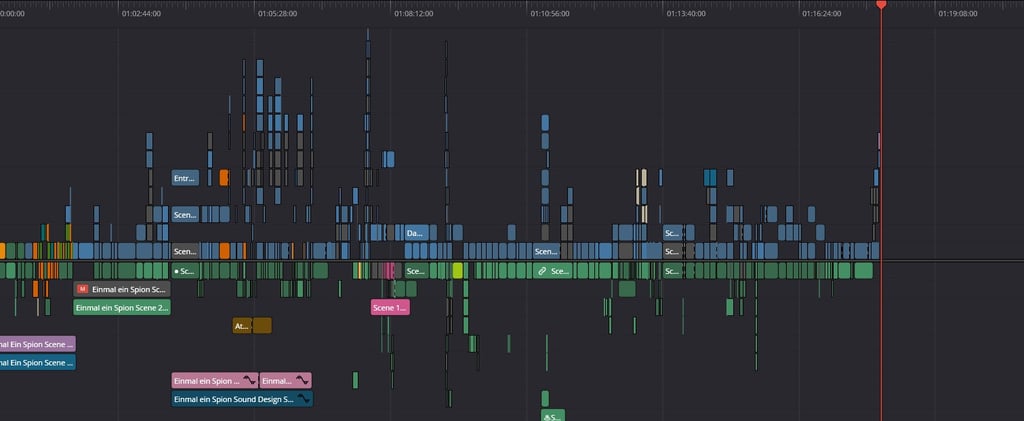

And lastly I present you: "The final Timeline". One might ask "why bother so much?". Honestly, after I heard the audience saying "Wooooow!" during the POV Shot of my graduation film premier... I can only say it's a payoff, that cannot be understood, unless it is experienced. The entire production of a film and heavy post-production with 3D, CGI, VFX and Editing is an incredibly heavy load and I learned to carry it until the very end. A big project might just resemble a dragon, but hey, as long as you are a wizard, it's not as scary anymore. And if you have a team of wizards with you, nothing is impossible.
Animation
Before you move on, meet Mr. Kraken und Theodor. Mr. Kraken being from a side university project, acting as a mascot (fully modelled, rigged and animated by me), and Theodor being a character from a fully animated short film by me and a few friends. The animation and modelling part was done entirely by me as well. There will be links in the project section down below, so stay tuned.
Software used:
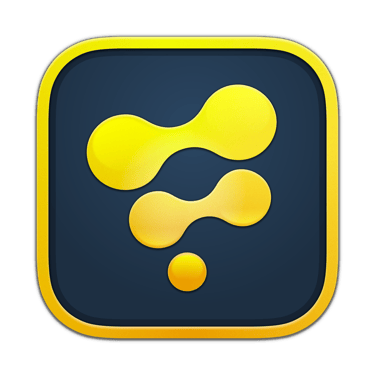
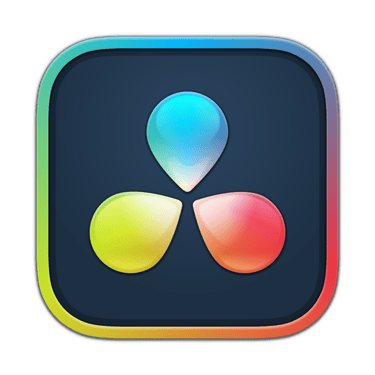
Writing
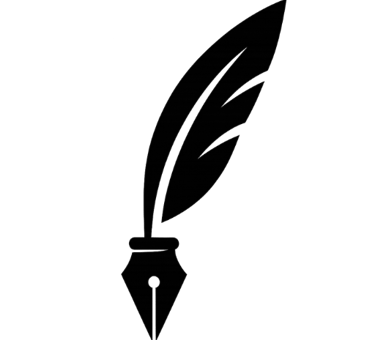
1.INT. WEBSITE. DAY.
After finishing my Scientific Master's Paper on narrative design in film pre-production, I managed to identify the key elements that make the pre-production process suffer, which in turn creates cascading problems during the production and post-production process. In the end I developed "Narrative Knowledge Framework", which allows creators to quickly analyze their pre-production narrative design, and avoid production and post-production mistakes that could undermine the initial idea, alienate the target audience and cause a general disconnect between the story, its characters and the target audience experiencing the story.
Writing is one of the hardest phases of an artistic project, for the quality of the author's writing directly influences how well the production and post-production of a given project will be transmitted to the audience.
Alexander
As such, I continued with my research and gradually transformed from a scriptwriter to a creative writer, to a fully fledged author. During my transformation I conducted further researches on narrative design and developed a framework on "Character Chemistry", as well as a "Metaphorical Constellations" method, that I teach on my Udemy course "Writing Masterclass: The Art of Meaningful Storytelling".
Alexander
At the moment, I write screenplays, symbolic narratives for music videos and do script consulting for writers to give their stories a unique and authentic edge.
My research is ongoing, and I am currently working on a "Character Development Framework" and a "Symbolic Music Composition Framework". (Keep in mind that these are preliminary names are subject to change).
(Cut to Music)
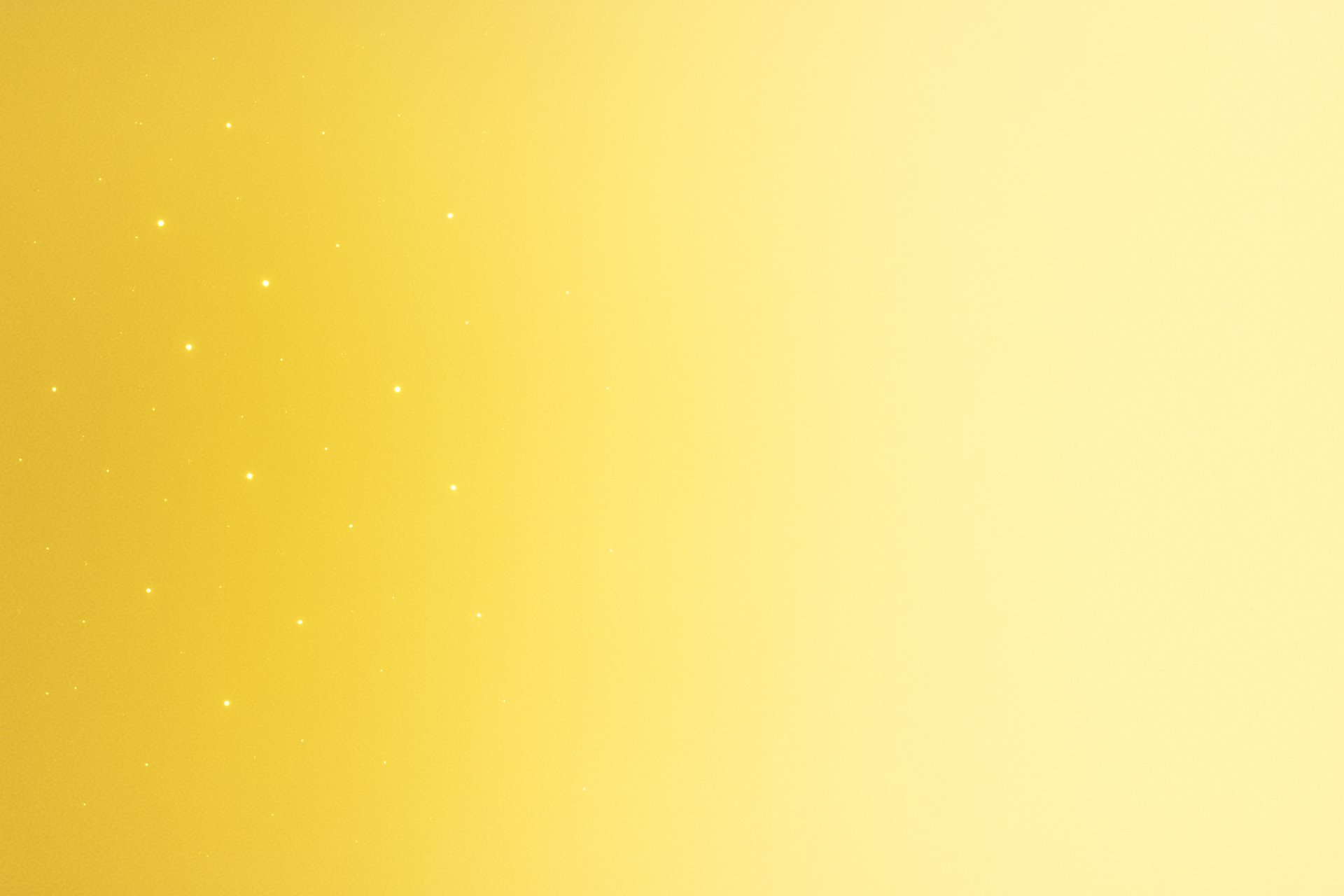
𝄞Music
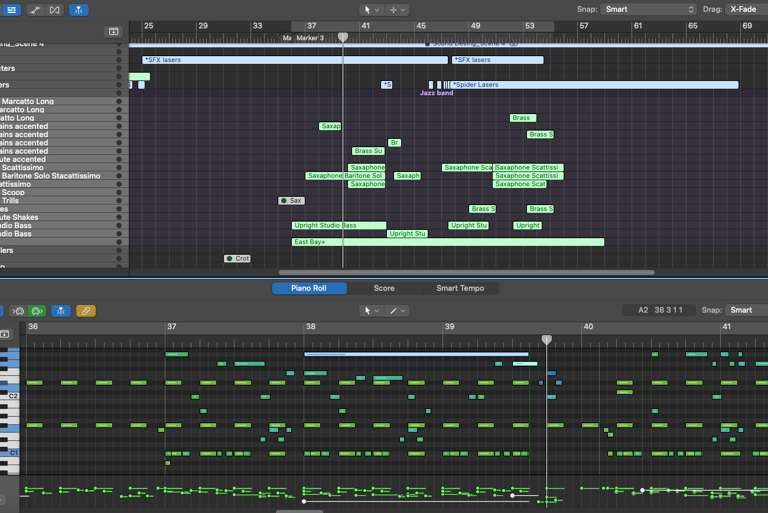

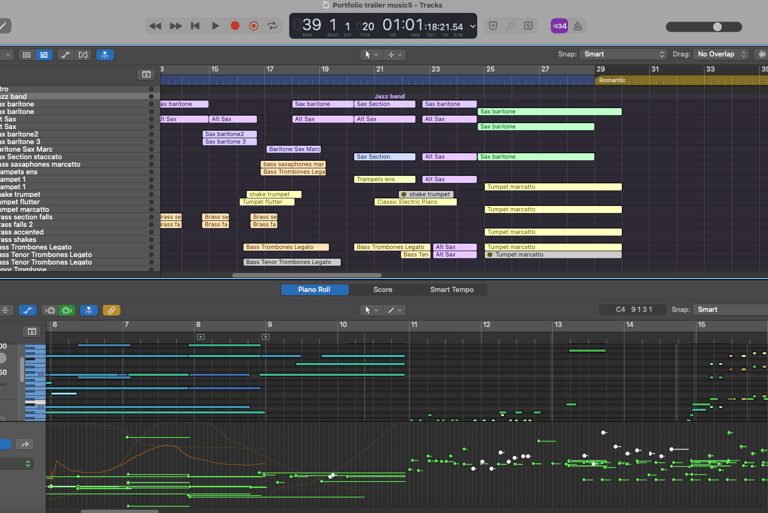

(Jazz Section for "Once a Spy" composed by me.)
(Orchestral and Jazz Section for Portfolio Trailer composed by me.)
What I compose
I started composing music at the age of 17, and it quickly became a big part of my life, which led me to composing for small music videos first and for short film and animation later in my life, as I matured artistically.
Currently, I am writing full orchestral soundtracks for film, rock music, instrumentals, jazz sections and more.
I mainly use my composing skills to score narrative driven projects, with a story behind the notes. That's why any narrative driven composition is going to be within my domain: be it film, video games, or music accompanying still or animated art works.
I think music is a very important narrative element, and I am currently researching it from a narrative standpoint by analyzing works of John Williams, John Powell, Dylan C. Jones and more, as well as taking a deeper look behind the different modes used for music composition. It is an ongoing research, but be sure to check my Research page, maybe I have already publish some of my findings, if not...stay tuned!
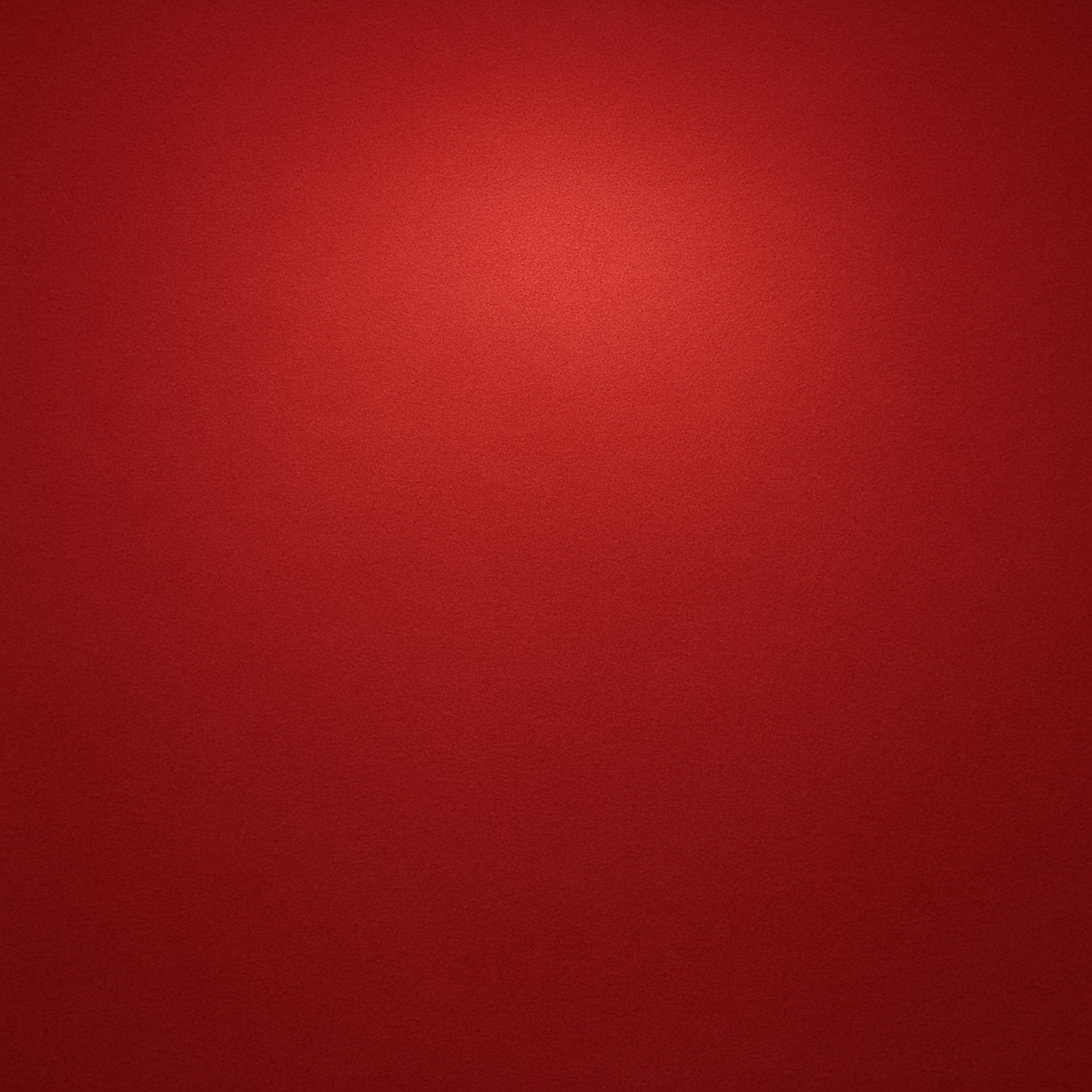
Projects
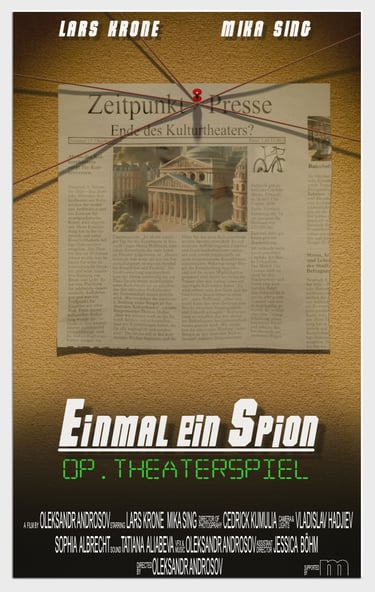

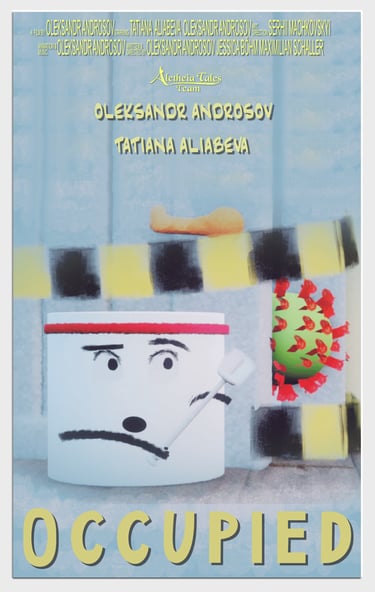

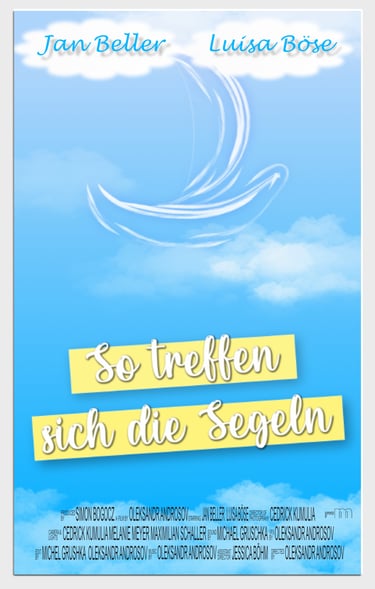

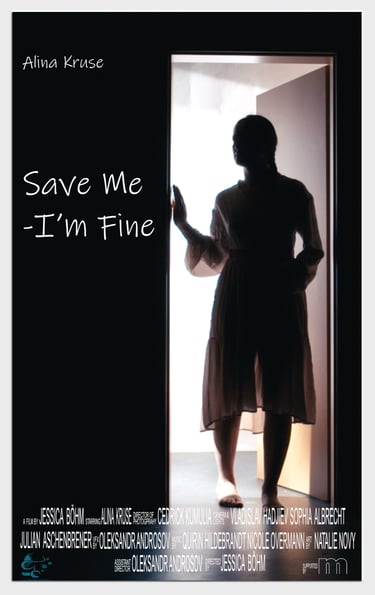

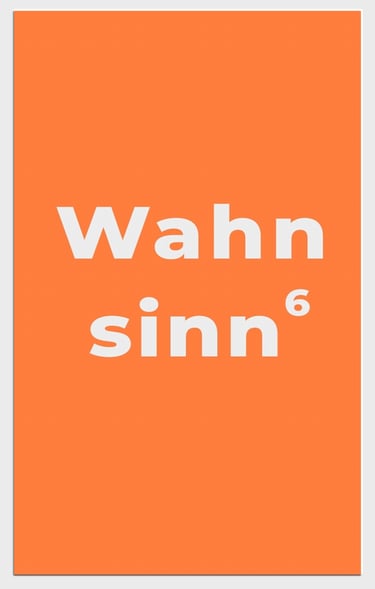

Film projects I directed
Film projects I have been a part of
Note
Keep in mind that some projects are confidential, due to being a university project and university policy. The "Once A Spy" project will remain hidden for now, because it's a project I want to pitch later this year and can't fully publish the film for that reason. So, wish me luck!
If you want to learn about the projects in more detail, you can download the PDF provided below.



Research
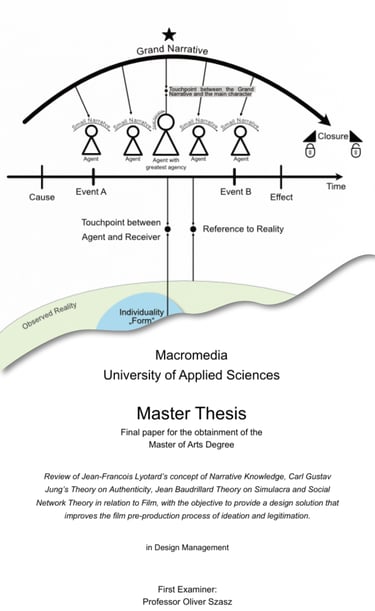

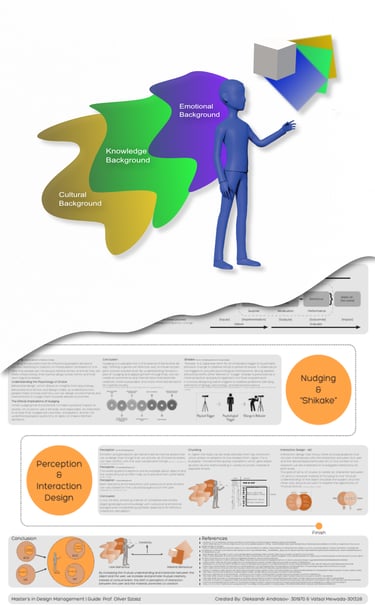

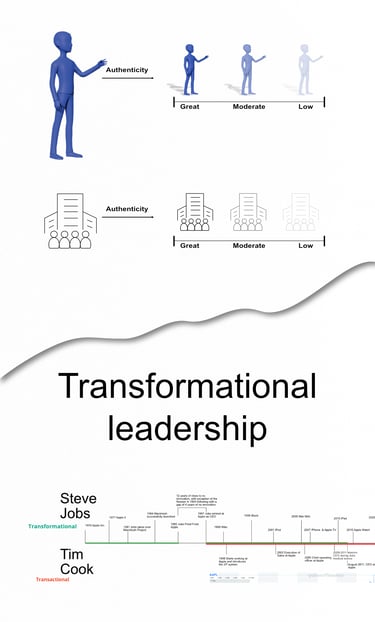

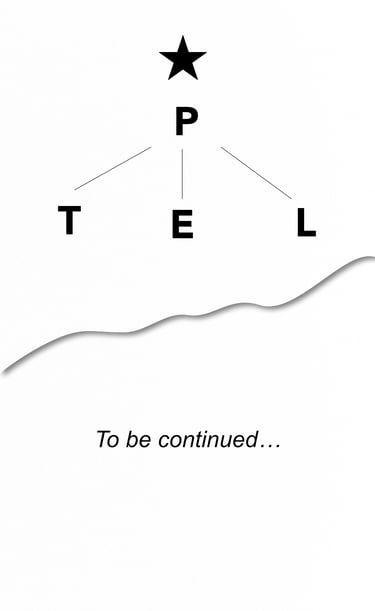

Master Thesis (Narrative Design)
Design Behavior (Human Perception)
Transformational Leadership (Leader’s Authenticity)
Character Chemistry (Narrative Design)


A Design Manager is a scientist who performs "process analysis" of a design to identify key problems and improve the design. It's someone who inspects how a design is managed.
What is a Design Manager?
For my Master Thesis, I analyzed the design of film creation and identified that multiple problems in the film making and delivery process stem from the pre-production phase. Then inspected how that specific process of the chain is managed and why it causes problems. With a deep dive into the history of narrative exchange of knowledge, psychology, philosophy, sociology, and analysis of present film releases, I not only identified the core issue but also developed a working framework that can be used during the ideation process of film pre-production. The framework was used in a workshop during my research phase, which rendered highly positive results of students authentically creating new and interesting ideas in matter for 40 minutes.
And in practice?
Is there more?
My research continued after my Master Thesis and led me to study the problems of pre-production even deeper, to then develop a new framework I called "Metaphorical Constellations". It offers a symbolic way to create original and unique stories, while maintaining one's authenticity and bypassing the imposter syndrome sitting on one's shoulder. The method was developed by deeply studying narrative knowledge, Jungian psychology, the work of the Heart Math Institute, the works of Alan Watts and Gregg Braden..
The initial feedback was very positive: even non-writers were able to understand the method quickly and start creating stories. Meanwhile, people working in the field started creating original ideas more quickly. I personally use the method myself for every project, and can't think of going back to the old ways of writing stories, which I have learned during my time as a university student.
Currently, the method is being taught on Udemy, which also serves as a testing ground for further feedback, as well as my wish to educate young talent to write authentic stories from the very beginning of their author's journey.
To find more about my research, click here!
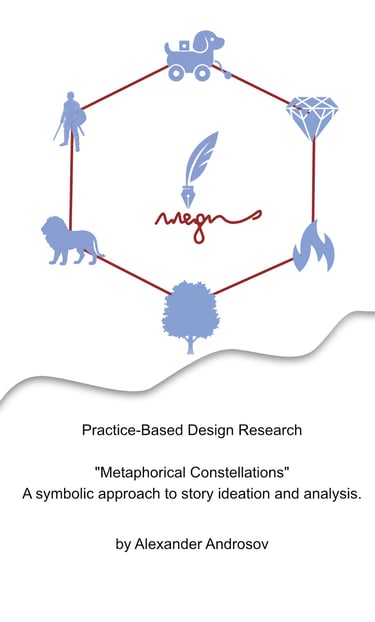

"Metaphorical Constellations"(Ideation and Analysis Framework)
Education
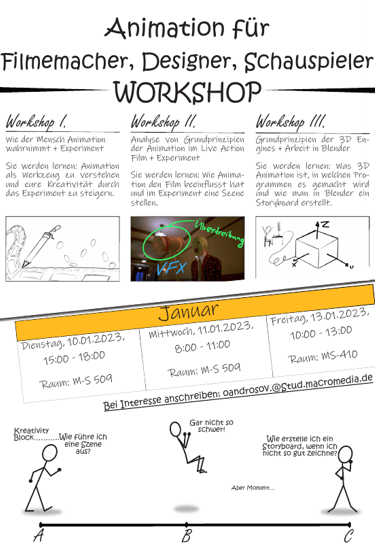

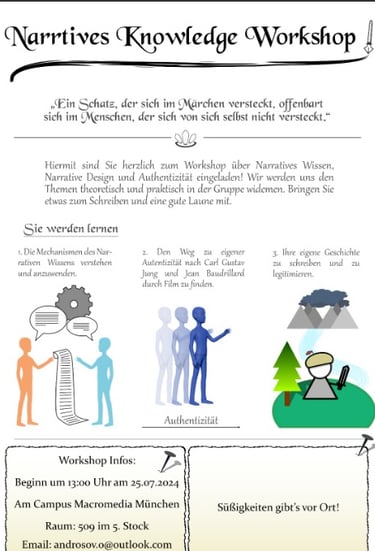

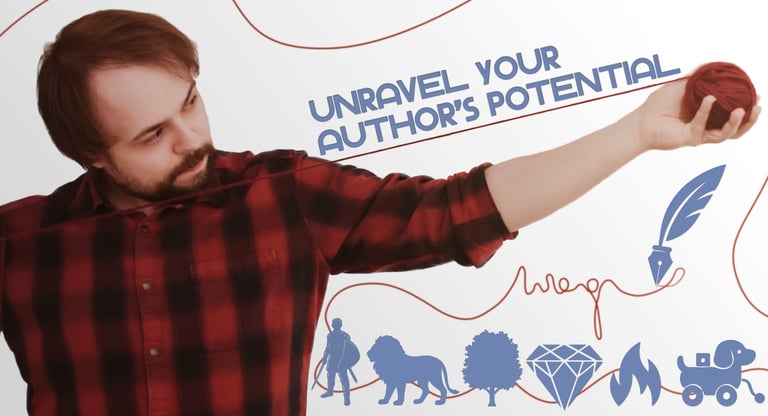

I think that teaching is a very important responsibility that professionals, who are able to teach, carry. Passing on knowledge has never been more important underneath the growing tide of "Quick Tips" to solve one's problems.
I perform deep analysis in my research about key topics in the cultural industry. My main topics of study and expertise at the moment are: Knowledge, Narrative, Psychology, Philosophy which often intersects with Theology.
The primary goal of this pursuit is to find new ways to help people to be authentic, generate their own ideas, and follow the thread of their own talent, not what is trendy, or what is imposed upon them. The freedom and authenticity of a soul are of incredible importance and thankfully, in our times we have the tools, sources and possibility to help people live their lives as sovereign beings and bring forth the inner hidden potential, which the world is waiting for.
Of course, I also teach hands-on creative skills, such as Animation, Video Editing, VFX, CGI, and 3D Modeling, primarily for beginner and intermediate learners looking to build real competence in these fields.
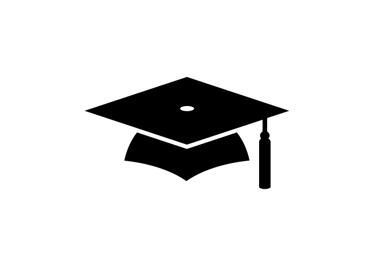

I teach
Animation for Filmmakers Workshop
Narrative Knowledge Workshop
Writing Masterclass: The Art of Meaningful Storytelling (On Udemy)
Contact Me


In case you find my skills and expertise interesting, contact me using the button below. We could work together and do some magic.
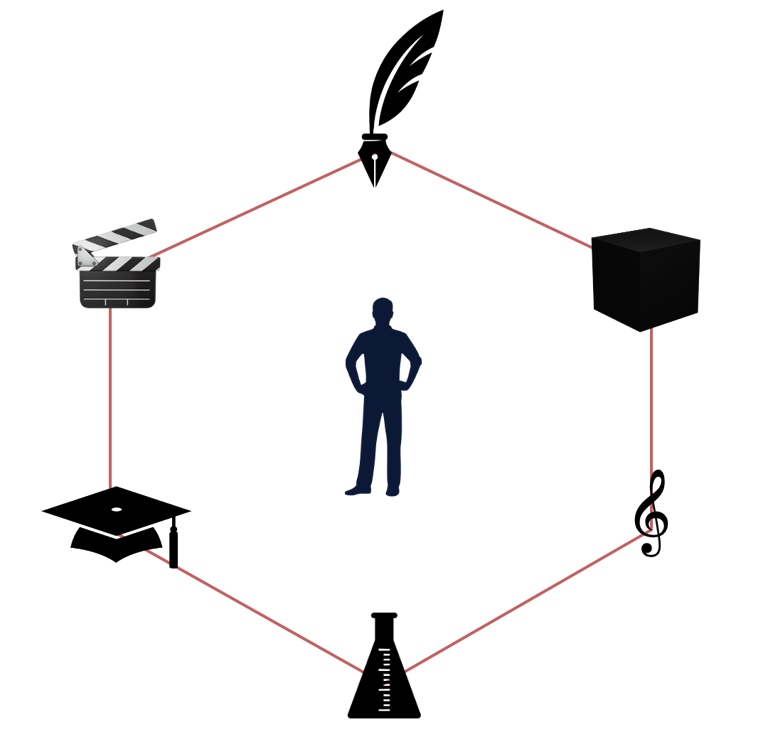

I work as:
A Film Director.
A Writer (also consulting).
A 3D, VFX, CGI Artist and Editor.
A Film & Video Game Music Composer. (Will also score music videos or alike).
A Design Researcher.
A Teacher (Seminars and Workshops).
I teach in English, German, Russian and Ukrainian.
